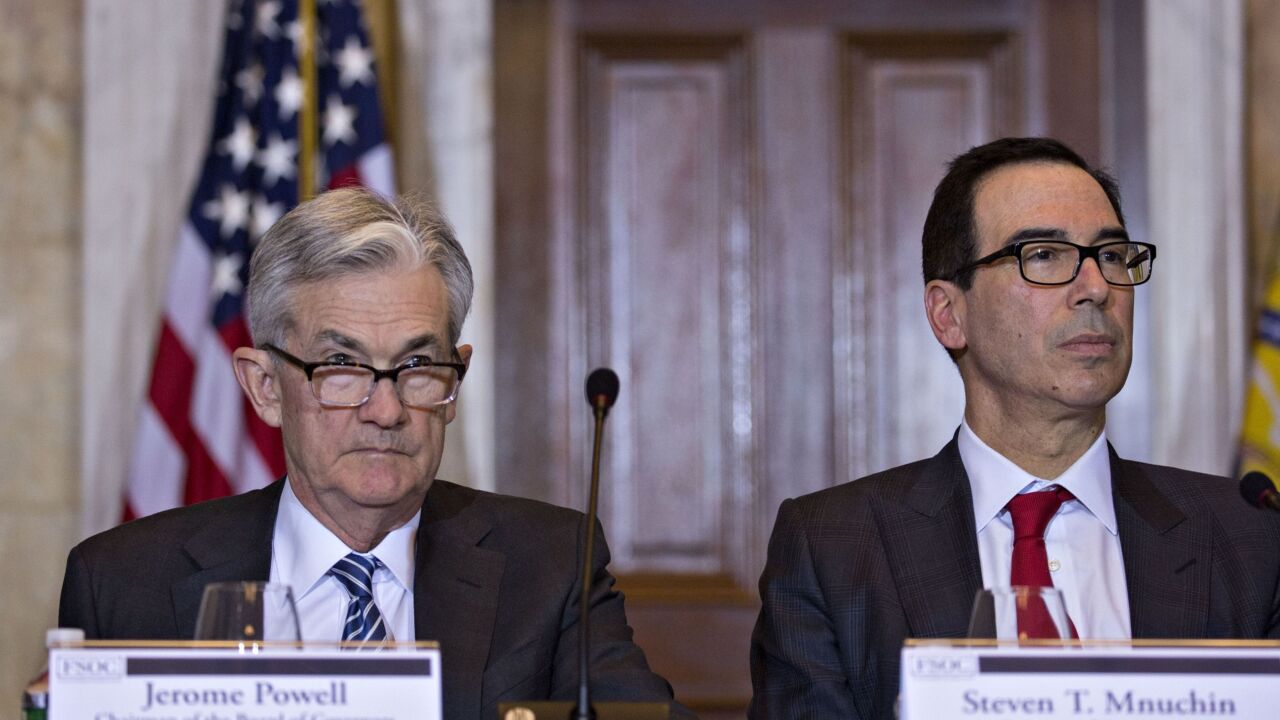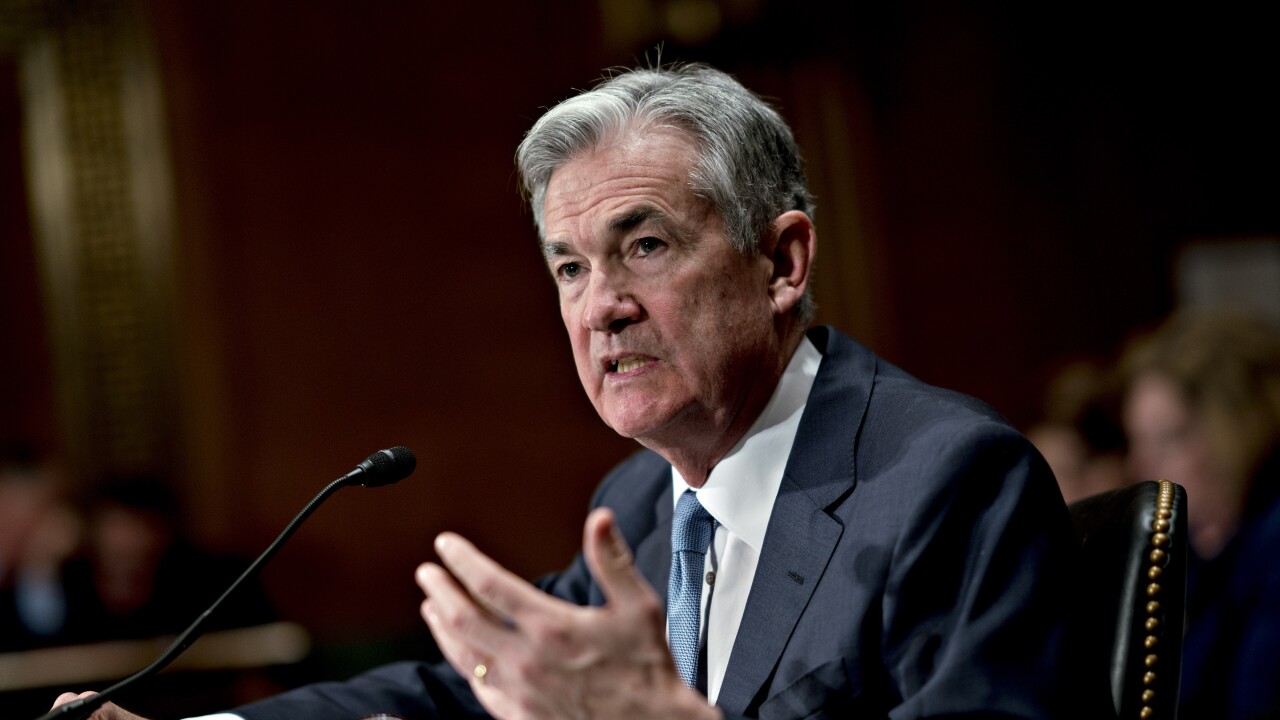-
The Financial Stability Oversight Council said the mortgage giants may need a bigger capital cushion than their regulator has proposed, but stopped short of designating them as “systemically important financial institutions.”
September 25 -
Commercial real estate companies are among those left out of the Federal Reserve’s middle-market relief program, but House members said they need government-backed financing to navigate the pandemic as much as anyone.
September 22 -
The central bank said it would keep interest rates at current levels through at least to help the U.S. economy recover from the coronavirus pandemic.
September 16 -
Whoever wins the White House in November may have immediate agency openings to fill, while a key decision looms about who will run the Federal Reserve after Jerome Powell’s term expires in 2022.
August 7 -
The Federal Reserve Racial and Economic Equity Act would direct the Fed to consider racial inequality in employment, income and access to affordable credit when making monetary policy and in its regulation and supervision of banks.
August 5 -
Many commercial property owners are locked out of existing coronavirus relief by financing terms that bar them from taking new loans. Under a House bill, they would receive government-backed equity investments.
July 22 -
The Federal Reserve pledged to maintain at least the current pace of asset purchases and projected interest rates will remain near zero through 2022, as Chairman Jerome Powell committed the central bank to using all its tools to help the economy recover from the coronavirus.
June 10 -
The head of the U.S. central bank said its emergency credit programs were not designed to prop businesses up over the long term.
May 13 -
The letter written by Rep. Maxine Waters, D-Calif., and Sen. Sherrod Brown, D-Ohio, was seen as a boost to Wall Street lobbying efforts seeking to quell the fallout of the coronavirus crisis on the mortgage market.
April 16 -
The rush to unload mortgage-backed securities signals that a credit meltdown that began with corporate bonds is spreading to other corners of the market.
March 23 -
The Federal Open Market Committee lowered the fed funds rate target to between zero and ¼% in an emergency meeting on Sunday, but while analysts say the move was needed, they feel it will take more to offset the effects of COVID-19.
March 16 -
The actions include cutting the federal funds rate to between 0% and 0.25% and other steps to ease economic stress from the spread of the coronavirus.
March 15 -
The central bank has been under increasing pressure to act as investors have been losing faith in the Trump administration's efforts to contain the economic fallout.
March 12 -
The Federal Open Market Committee cut the fed funds rate target 50 basis points to a range between 1% and 1.25%, it announced Tuesday.
March 3 -
The Federal Reserve is monitoring the COVID-19 issue and its economic effects, according to a release from the central bank, attributed to Chairman Jerome Powell, released Friday.
February 28 - LIBOR
Federal Reserve Chairman Jerome Powell told senators that the central bank is willing to explore a credit-sensitive interest benchmark in addition to the secured overnight financing rate, which some banks say could cause problems during economic stress.
February 12 -
Unlike previous central bank chiefs, Powell’s chances of being renominated by either the current president or many of the Democratic contenders are slim.
November 10 -
Financial regulators have been put on notice about the risk of an economically damaging cash crunch in the home mortgage market. Behind the concern: the rapid growth of shadow banks in the origination and servicing of home loans.
November 5 -
The Federal Reserve reduced short-term rates for the first time in years, and accelerated its plan to stop shrinking the Fed’s balance sheet by rolling maturing mortgage-backed securities into Treasuries.
July 31 -
The Federal Reserve will roll its maturing holdings of mortgage-backed securities into Treasuries starting after September, capping it at $20 billion per month.
March 20

![Fed Chairman Jerome Powell said the central bank had previously concluded that asset-based borrowers were able to secure financing elsewhere. Treasury Secretary Steven Mnuchin said “small hotels do not fit into [the Main Street Lending Program] because they already have other indebtedness.”](https://arizent.brightspotcdn.com/dims4/default/71a30be/2147483647/strip/true/crop/1600x900+0+0/resize/1280x720!/quality/90/?url=https%3A%2F%2Fsource-media-brightspot.s3.us-east-1.amazonaws.com%2Fb3%2F79%2F3b1db6264efa9eab86e05b296afc%2Fpowell-jerome-mnuchin-steven-bl-092220.png)

















